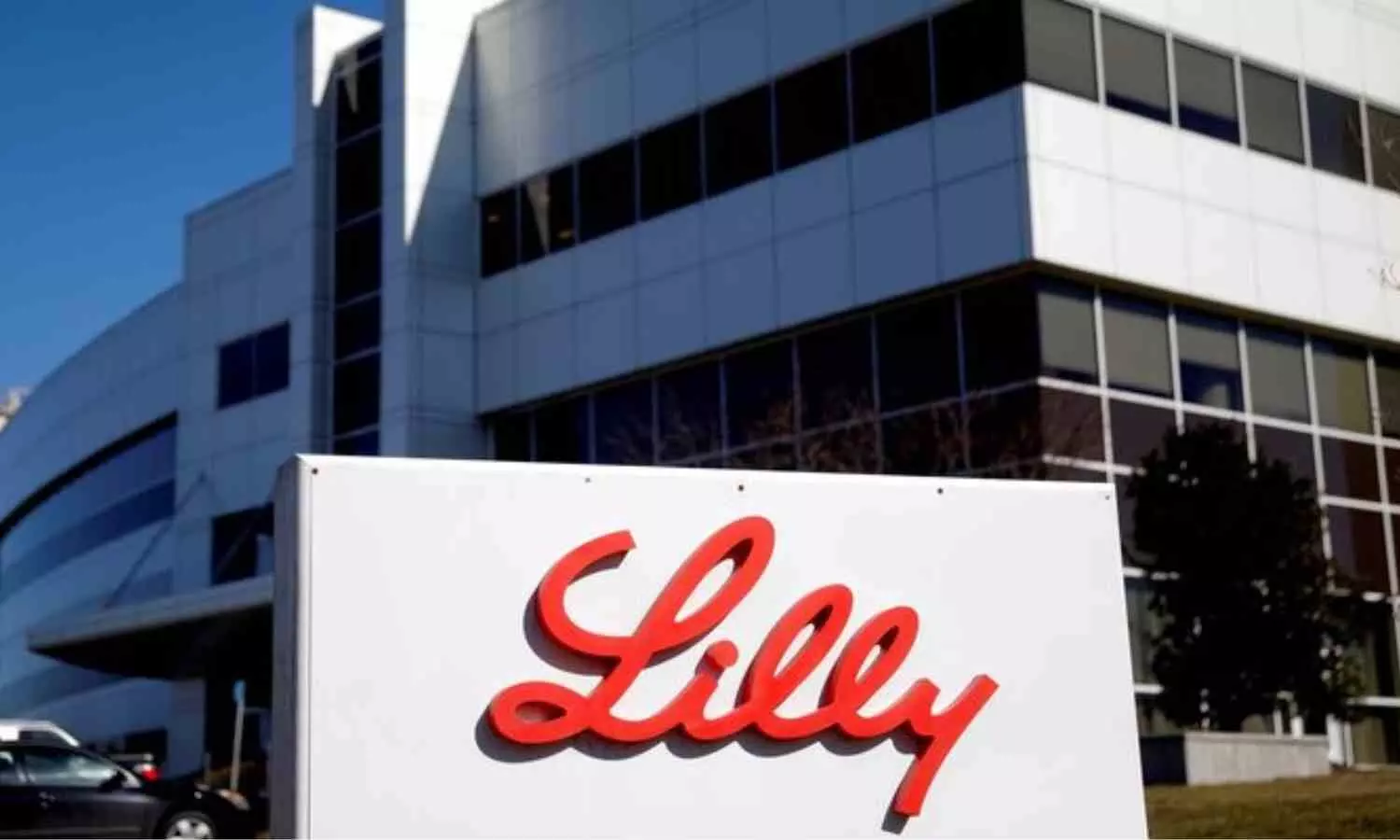Eli Lilly Kisunla gets USFDA okay for early Symptomatic Alzheimer’s Disease

Indianapolis: Eli Lilly has announced that the
Once-monthly Kisunla is a amyloid plaque-targeting therapy with evidence to support stopping therapy when amyloid plaques are removed, which can result in lower treatment costs and fewer infusions.
“Kisunla demonstrated very meaningful results for people with early symptomatic Alzheimer’s disease, who urgently need effective treatment options. We know these medicines have the greatest potential benefit when people are treated earlier in their disease, and we are working hard in partnership with others to improve detection and diagnosis,” said
Amyloid is a protein produced naturally in the body that can clump together to create amyloid plaques. The excessive buildup of amyloid plaques in the brain may lead to memory and thinking issues associated with Alzheimer’s disease. Kisunla can help the body remove the excessive buildup of amyloid plaques and slow the decline that may diminish people’s ability to remember new information, important dates, and appointments; plan and organize; make meals; use household appliances; manage finances; and be left alone.
In the TRAILBLAZER-ALZ 2 Phase 3 study, people who were the least advanced in the disease experienced the strongest results with Kisunla. Trial participants were analyzed over 18 months in two groupings: one group who was less advanced in their disease (those with low to medium levels of tau protein) and the overall population, which also included participants with high tau levels. Treatment with Kisunla significantly slowed clinical decline in both groups. Those individuals treated with Kisunla who were less advanced in their disease showed a significant slowing of decline of 35% compared with placebo on the integrated Alzheimer’s Disease Rating Scale (iADRS), which measures memory, thinking, and daily functioning. In the overall population, the response to treatment was also statistically significant using the iADRS at 22%. Among the two groups analyzed, participants treated with Kisunla had up to a 39% lower risk of progressing to the next clinical stage of disease than those taking placebo.
Among the overall population of participants, Kisunla reduced amyloid plaques on average by 61% at 6 months, 80% at 12 months, and 84% at 18 months compared to the start of the study. One of the treatment goals of the study was to remove amyloid plaques to minimal levels consistent with a visually negative scan using amyloid positron emission tomography (PET). If participants were confirmed to have reached these levels, they were able to complete treatment with Kisunla and switch to placebo for the remainder of the study.
Kisunla can cause amyloid-related imaging abnormalities (ARIA), which is a potential side effect with amyloid plaque-targeting therapies that does not usually cause symptoms. It can be detected via magnetic resonance imaging (MRI) scans and, when it does occur, may present as temporary swelling in an area or areas of the brain, which usually resolves over time, or as small spots of bleeding in or on the surface of the brain. Infrequently, larger areas of bleeding in the brain can occur. ARIA can be serious, and life-threatening events can occur. Kisunla can also cause certain types of allergic reactions, some of which may be serious and life-threatening, that typically occur during infusion or within 30 minutes post-infusion. Headache is another commonly reported side effect.
“This approval marks another step forward in evolving the standard of care for people living with Alzheimer’s disease that will ultimately include an arsenal of novel treatments, providing much needed hope to the Alzheimer’s community. As a physician, I am encouraged by the potential to stop treatment, which could reduce out-of-pocket costs and infusion burden for eligible patients,” said
In the TRAILBLAZER-ALZ 2 trial, people were able to complete treatment and switch to placebo at 6, 12, or 18 months after they achieved one of the study’s treatment goals, minimal levels of amyloid plaque consistent with a visually negative amyloid PET scan. In the overall population of people receiving Kisunla, 17% completed treatment at 6 months, 47% at 12 months, and 69% at 18 months based on an assessment of amyloid levels via an amyloid PET scan.1
|
Kisunla Limited-Duration Treatment Examples |
|||
|
Length of Treatment |
6 months |
12 months |
18 months |
|
30-Minute Infusions |
6 |
13 |
19 |
|
Course of Therapy Cost |
$12,522 |
$32,000 |
$48,696 |
|
Note: The price of each vial of Kisunla is |
|||
The total cost of Kisunla will vary by patient based on when they complete treatment. The
Patients’ out-of-pocket cost for treatment with Kisunla will depend on their length of treatment and their insurance. Coverage and reimbursement for Kisunla are now available for eligible patients on Medicare under a National Coverage Determination with Coverage with
Read also: Eli Lilly executive Anat Ashkenazi to join Google, Alphabet as new CFO



